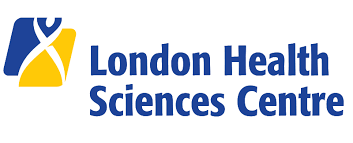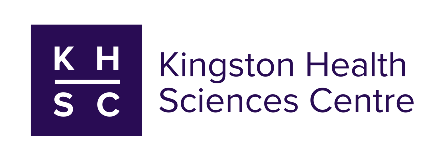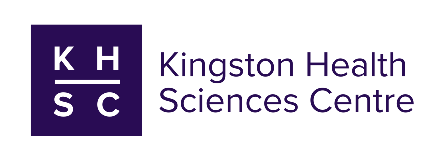MOHCCN Pathfinder Project clears the way for future data sharing between Network members

Through its Pathfinder Project, the MOHCCN has developed and deployed a technical tool that allows members to upload, discover – and eventually access – the data needed to accelerate precision medicine for cancer patients.
The Marathon of Hope Cancer Centres Network (MOHCCN) is clearing the way for the acceleration of precision medicine for cancer in Canada thanks to work being done through its Pathfinder Project – a collaboration with the Canadian Distributed Infrastructure for Genomics (CanDIG), a pan-Canadian initiative led by a team at the University Health Network in Toronto.
Launched in October 2021, the MOHCCN Pathfinder project has helped establish the technical software that will allow clinical and genomic data to be deposited according to MOHCCN standards, setting the stage for the creation of the largest, and most complete, cancer case resource in the country: The MOHCCN Gold Cohort. This game-changing resource will include clinical and genomic data from 15,000 patients with diverse genetic backgrounds and different types of cancer treated in health care centres across Canada.
“The goal of the MOHCCN Pathfinder Project was to figure out the logistics to efficiently ingest cancer research data from participating centres across Canada and create a technical tool that would allow researchers to see what data is available so that they can eventually request access to it for their studies,” says Dr. Karen Cranston, a computational biologist and the CanDIG Team Lead. “We’re happy to say that a lot of that work is now complete, which bodes really well for the future data-sharing capabilities of the Network.”
Accelerating Precision Medicine for Cancer
Precision medicine is a promising framework for cancer care that takes the genetic make-up of each tumour – and the personal characteristics of each patient – into consideration to personalize treatments, increasing survival and quality of life for patients. To make it a reality, researchers and clinicians need access to large data set – more than any single cancer centre in Canada generates – that will enable them to apply new technologies to pinpoint the Achilles’ heel of each person’s cancer and match them to the best treatment to eradicate their disease.
To create this game-changing resource, the MOHCCN is using a multi-pronged approach. On the one hand, the Network is uniting researchers, clinicians, patients, hospital executives and their teams to determine what data needs to be collected.
To validate this work, MOHCCN leaders engaged with the CanDIG team to customize their existing software to ingest Gold Cohort data, according to the newly created policies, in a federated system, meaning that ingested data never leaves its site of origin. MOHCCN researchers will then be able to query it and ask for permission to use it in new precision medicine studies.
The MOHCCN Pathfinder Project sits at the intersection of these two activities. By leveraging CanDIG’s presence in a group of select participating centres over 18 months, the project was able to provide the technical framework to test, refine and validate the Network’s data policies, while allowing clinical and genomic data from the three initial consortia – the Princess Margaret Cancer Consortium (PM2C), the BC Cancer Consortium (BC2C), and the Marathon of Hope - Quebec (MOH-Q) – to be uploaded into the Network.
As the project moves on, CanDIG will be installed at institutions that are members of the Network’s two newest consortia: the Prairie Cancer Research Consortium (PR2C) and the Atlantic Cancer Consortium (ACC).
“This is a huge development,” says Dr. Cranston. “It effectively represents the first instance of a searchable MOHCCN data-sharing network.”
While there is still a lot of work to be done to add tools to analyze that data in ways that will help cancer patients, the success of the Pathfinder Project sets the stage for the success of other Network operations.
“What was a gravel road is now a paved road,” explains Dr. Natalie Szudy, who has been spearheading the Pathfinder Project for the MOHCCN. “We’re aware that this is only the first step in a longer marathon, but the Pathfinder Project was all about setting up a roadmap for success, helping validate our data models and creating the technical tools that we will carry forward, and this work was a real success.”
“What was a gravel road is now a paved road,” explains Dr. Szudy. “The Pathfinder Project was all about setting up a roadmap for [future developments], and this work was a real success."
Related Team Member
-
Karen
ResearcherWorking Group Member
Cranston
-
Regional Consortia
BC Cancer Consortium
- British Columbia
The overall vision of the BC Cancer Consortium is to further strengthen our province-wide research capabilities and partnerships, to improve our ability to support innovation in clinical care, and fir...Read more
-
Regional Consortia
Marathon of Hope - Québec
- Québec
The Marathon of Hope – Québec (MOH-Q) brings together leading scientists and clinicians from hospitals and research centres including the Research Institute of the McGill University Health Centre (RI-...Read more
-
Regional Consortia
Ontario Cancer Consortium
- Ontario
The Ontario Cancer Consortium coalesces the expertise and efforts of clinicians, pathologists, software developers and data and translational scientists to help accelerate precision medicine for cance...Read more
-
Regional Consortia
Prairie Cancer Consortium
- Alberta
- Manitoba
- Saskatchewan
The overall vision of the PR2C is to create a collaborative, inclusive, equitable, and sustainable multiprovincial initiative that works towards developing new treatment strategies for patients facing...Read more
-
Regional Consortia
Atlantic Cancer Consortium
- Prince Edward Island
- New Brunswick
- Newfoundland and Labrador
- Nova Scotia
We have rallied our region’s leading cancer researchers, institutions and care facilities to unite around this vision to enhance inter-institutional and inter-provincial cancer research collaboration,...Read more
Related News
-

Precision medicine should be first-line treatment for metastatic pancreatic cancer, study finds
A new clinical trial comparing the efficacy of two treatments commonly used on patients with metastatic pancreatic cancer has shed new light on the importance of using genomic sequencing to inform car... -

Atlantic Cancer Consortium leadership and members share updates with the Network
The presentation was part of MOHCCN Seminar Series, which features virtual talks from MOHCCN research partner investigators and trainees, providing a platform for MOHCCN members to share their ongoing... -

Prairie Cancer Consortium leadership and members share updates with the Network
The presentation was part of MOHCCN Seminar Series, which features virtual talks from MOHCCN research partner investigators and trainees, providing a platform for MOHCCN members to share their ongoing... -

Marathon of Hope – Québec consortium leadership and members share updates with the Network
The presentation was part of MOHCCN Seminar Series, which features virtual talks from MOHCCN research partner investigators and trainees, providing a platform for MOHCCN members to share their ongoing...








































